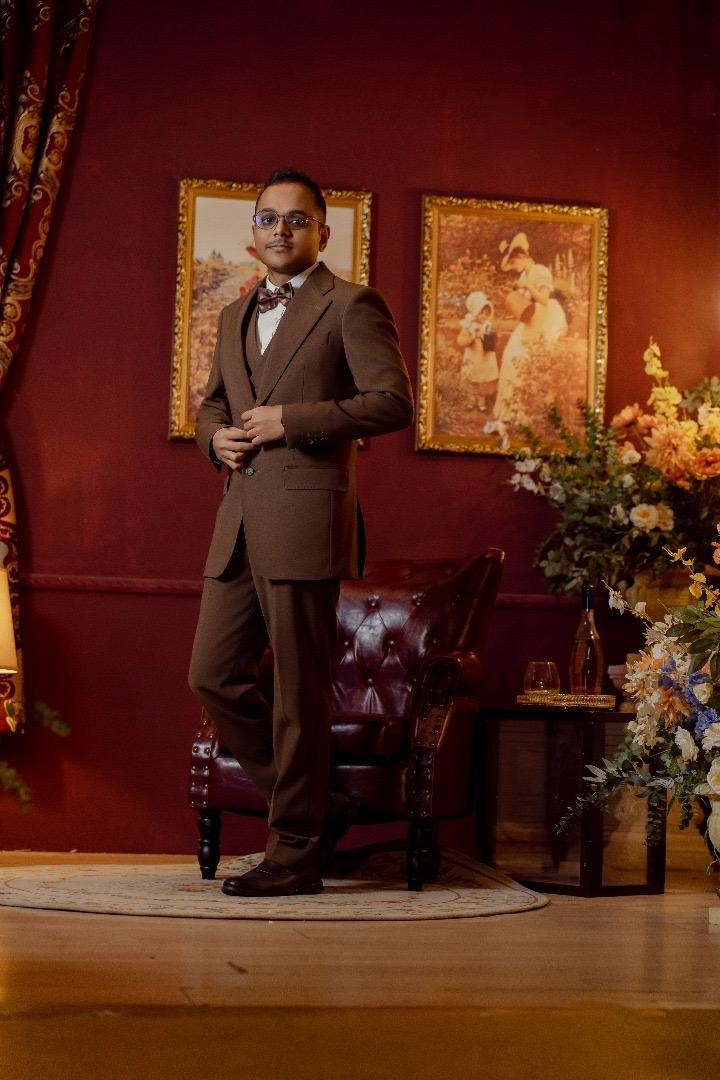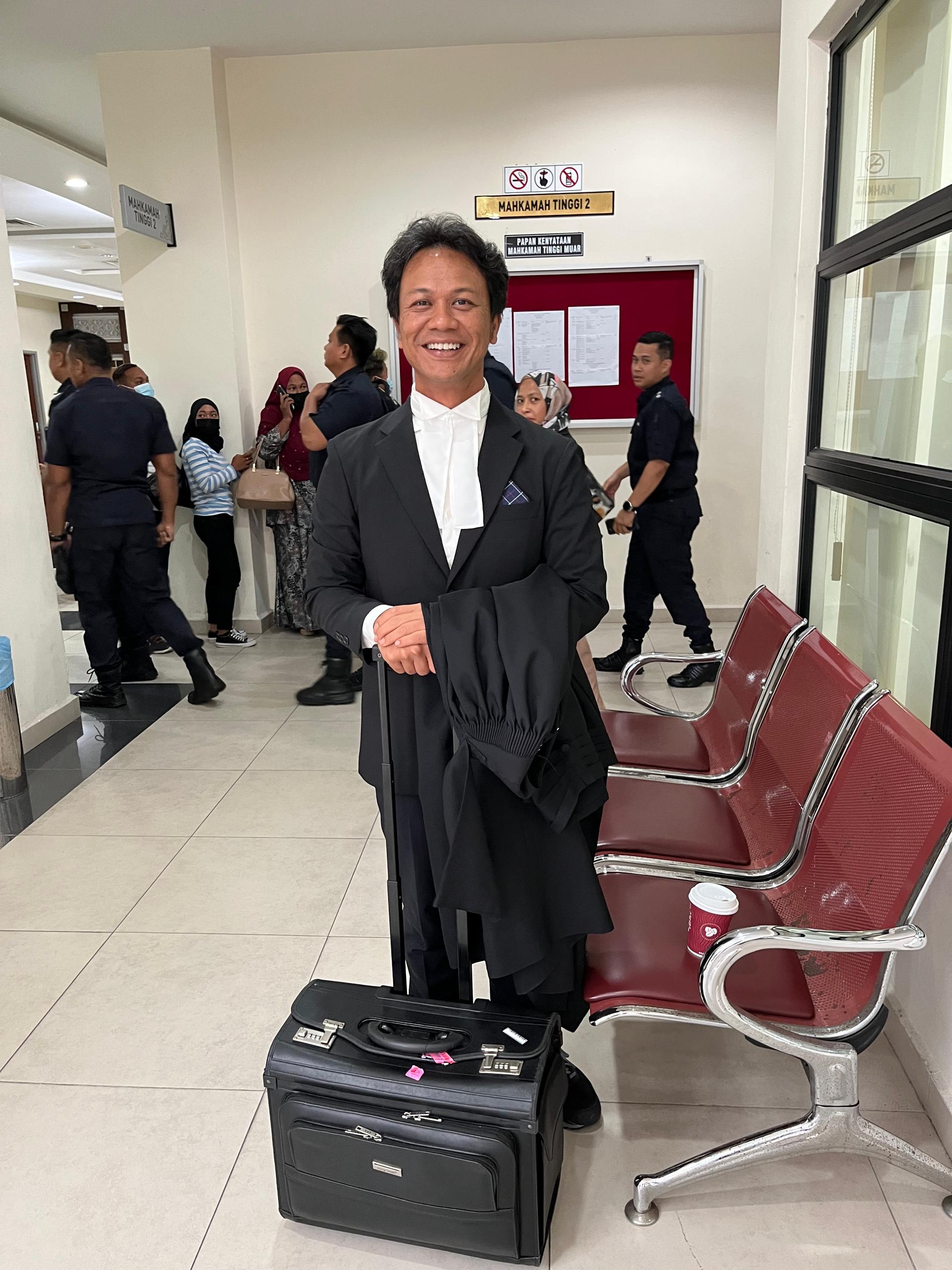What They Don’t Tell You About the Legal Field

Munirah Ahmad Niza
November 7, 2025
What does it really take to be a lawyer in Malaysia? From courtroom battles to property deals and family mediation, these lawyers share the unseen side of their work, and why it’s worth every challenge.
Each branch of law — civil, criminal, Syariah and conveyancing — demands distinct skills and mindsets.
Civil law requires sharp analysis, meticulous preparation and a deep grasp of legal principles.
Criminal lawyers uphold justice by ensuring fair trials and protecting the presumption of innocence.
Syariah lawyers navigate complex family and faith-based issues with empathy and cultural sensitivity.
Conveyancing lawyers handle life-changing property transactions that blend law, finance and human connection.
Many people think they know what lawyers do: argue in court, quote laws and chase big cases. But the truth is, every field of law has its own world, challenges and purpose.
To uncover what it’s really like, we spoke to Malaysian lawyers from different specialisations (criminal, civil, corporate and conveyancing) who shared misconceptions about their work and what it truly entails.
*The views expressed are based on individual experiences and may vary from other situations. We shall not be liable for any loss or consequence arising from reliance on the information contained in this article.
1. Civil Lawyer
When most people think of lawyers, they imagine dramatic courtroom battles and fiery arguments.
But for civil lawyers, the truth is far more complex. As Ahmad Radzmin of Messrs Ellan & Co puts it, “It's not as simple as people think.”
It’s where some of the most intellectually demanding and rewarding legal work happens.

The Misconception: Civil law is simple because everything is ‘on paper’
Contracts, letters, receipts, agreements — everything’s written down.
“But every document needs to be checked carefully to make sure you’ve proven your side of the story,” Ahmad explains.
“The court can only decide based on what you’ve written in your case. So if you leave out an important point, it could hurt your chances of winning.”
What Civil Lawyers Actually Do
Civil law deals with disputes between people or organisations, such as unpaid contracts, property issues, negligence or defamation.
A typical day often starts in court, followed by drafting pleadings, preparing affidavits, conducting legal research and perfecting submissions late into the night for tomorrow’s cases.
“Civil litigation requires you to be a Mr Know-It-All,” he says. “You really need to know your case inside out. That means reading, analysing and understanding the law in depth.”
It’s a job that tests your focus, discipline and time management, but it’s also deeply satisfying.
“The most rewarding part,” says Ahmad, “is when the judge agrees with your arguments. It means you’ve done your job well. And beyond that, you gain new knowledge every day.”
The Reality Behind the Work
For Logaprieyan A/L Arichandran, Legal Assistant at Messrs Ellan & Co, practising civil and criminal litigation is a balance of courtroom advocacy, strategy and continuous learning.

“A typical day depends entirely on your diary,” he says. “Some days you’re in back-to-back hearings; other days you spend hours doing research and drafting submissions.”
He explains that civil litigation isn’t just about arguing in court. It’s about managing evidence, understanding procedures and guiding clients through complex legal processes.
“People think being a lawyer is all about dramatic courtroom moments and winning every case,” Logaprieyan says. “In reality, most of our work happens behind the scenes, like research, paperwork and managing evidence.
“Many also assume that once you cite a law, the outcome is predictable, or that court processes are quick and inexpensive. In reality, the legal field requires patience, precision and a lot of behind-the-scenes work that most people don’t see,” he adds.
Like Ahmad, Logaprieyan also finds fulfilment in helping clients achieve meaningful outcomes.
“The most rewarding part is when you help restore someone’s rights or persuade the court through well-prepared arguments,” he shares.
Both Ahmad and Logaprieyan agree that civil litigation builds strong, well-rounded lawyers.
“Civil law builds your skills, your confidence and your understanding of how justice works,” Ahmad says. “Not every case will be in your favour, but every case offers new knowledge that will last a lifetime.”
Logaprieyan adds, “If you enjoy high-stakes, problem-solving work, this is the field for you. Focus on civil procedure, evidence and advocacy, and be persistent. Rome wasn’t built in a day.”
2. Criminal Lawyer
To many, criminal lawyers are seen as the defenders of ‘bad guys’. But as Anwar Raof of Messrs Anwar Raof & Co explains, that’s one of the biggest misconceptions about the profession.
It’s actually where the principles of justice are most tested, and most alive.

The Misconception: Defence lawyers support criminals
“In truth, we defend the right to a fair trial and uphold the presumption of innocence. Every person deserves proper representation before being judged. That principle is at the heart of justice,” Anwar says.
What Criminal Lawyers Actually Do
Their role is to ensure that every arrest, charge and trial is conducted fairly and in accordance with due process.
Mornings often start in court, handling mentions, hearings or trials. Afternoons are spent reviewing case files, drafting arguments and meeting with clients to plan their next steps.
“We make sure the law is followed properly,” Anwar explains. “We study every detail of a case, question evidence and present arguments clearly and respectfully in court.”
Criminal lawyers also support their clients through stressful and often frightening moments, helping them understand their rights and what to expect.
It’s a tough job, both mentally and emotionally. “You face time pressure and difficult stories every day. You see fear, loss and stigma up close. That’s why maintaining emotional balance is crucial.”
He also points out the challenge of public perception.
“Despite misconceptions, we must always act with professionalism and uphold the dignity of the legal process.”
For aspiring lawyers, Anwar urges students to go to court. “Watch real trials. Learn how seasoned advocates build a case theory and carry it consistently to the end. Take evidence and criminal procedure seriously as they’re your foundation.”
3. Syariah Lawyer
In Malaysia’s dual legal system, Syariah lawyers play a vital but often misunderstood role.
For Nur Sabrina Izzati of Tetuan Rahimi Tan & Co, practising Syariah law isn’t just a career; it’s a calling rooted in faith and representation.

The Misconception: Syariah law is a ‘lesser’ branch of law.
Many tend to underestimate the depth and importance of Syariah practice.
But as Sabrina explains, this perception often comes from unfamiliarity rather than judgment.
“People may not realise how complex this area of law can be. Syariah law deals directly with family, emotion and faith. It requires both legal understanding and emotional intelligence.”
What Syariah Lawyers Actually Do
Syariah lawyers represent clients in cases involving Muslim family law, such as marriage, divorce, custody and inheritance, guided by the Quran, Hadith and state laws.
Beyond that, it’s also about navigating human emotion, cultural sensitivity and spiritual values.
“In mediation (sulh), I have to think on my feet, guide both parties through their emotions, and help them reach an agreement,” Sabrina says.
Her days are packed with client calls, back-to-back trials, and emotionally intense cases that require patience and compassion
“It can get chaotic!” she laughs. “But it’s fulfilling, especially when I can help someone find peace after a difficult experience.”
One of her most memorable experiences was handling a pro bono divorce case for a woman from a B40 background.
“She couldn’t afford legal representation, but I managed to help her get out of a toxic marriage. Knowing I could make that difference was the real reward.”
Coming from an underprivileged family herself, Sabrina understands the struggle of seeking justice without support. “I know how hard it is when you need help but can’t afford it. That’s why I pursued law, to help others in the same position.”
Sabrina hopes more young Muslims will consider practising Syariah law.
“Every Muslim in Malaysia will deal with the Syariah system at some point, whether for inheritance or family matters. Yet, there aren’t enough Syariah lawyers to serve that need,” she says.
“It’s not always glamorous, but it’s meaningful work. You’re helping real people in real situations.”
4. Conveyancing Lawyer
If you’ve ever thought buying a house was just about signing papers and getting the keys, think again.
Conveyancing law may seem routine from the outside, but as Izyan Ithnain, Partner at Messrs Amirfaliq & Syahidah, explains, it’s actually a field that requires sharp focus, patience and a lot of problem-solving behind the scenes.

The Misconception: It’s simple, just like filling out forms and ticking boxes
“It’s not just forms and signatures,” Izyan says. “Each case can come with hidden challenges, like title issues, missing documents or land restrictions. You have to think critically and find solutions fast.”
What Conveyancing Lawyers Actually Do
A typical day involves checking contracts, reviewing titles, preparing loan documents, and communicating with clients, real estate agents and banks.
“Conveyancing sits right between law, money and people,” Izyan explains. “Clients can be stressed or emotional because it’s a big financial step for them. So being calm, clear and professional is key.”
Her journey into law began with her father’s encouragement. After graduating, she discovered her passion for conveyancing, a field that connects legal work to real-life milestones.
“What drew me in was how practical and people-focused it is,” she shares. “You’re not arguing in court; you’re helping someone buy their first home, sell a family property or move into a new chapter of their life.”
The work may not be dramatic, but it’s deeply fulfilling. “It feels meaningful to know that you're making a real impact in someone’s life,” she adds.
Her advice to young lawyers?
To look beyond the courtroom and recognise the satisfaction that comes from steady, client-centred work.
“Conveyancing offers the chance to guide clients through major life moments. It’s dynamic, fulfilling, and your work makes a real difference.”



